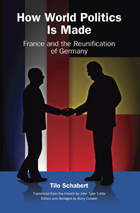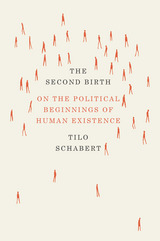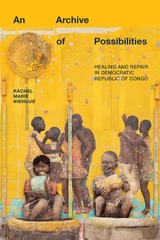2 books about Schabert, Tilo

How World Politics Is Made
France and the Reunification of Germany
Tilo Schabert
University of Missouri Press, 2009
With the collapse of the Soviet Union and its Eastern European bloc, the reunification of Germany was a major episode in the history of modern Europe—and one widely held to have been opposed by that country’s centuries-old enemy, France. But while it has been previously believed that French President François Mitterrand played a negative role in events leading up to reunification, Tilo Schabert shows that Mitterrand’s main concern was not the potential threat of an old nemesis but rather that a reunified Germany be firmly anchored in a unified Europe.
Widely acclaimed in Europe and now available in English for the first time, How World Politics Is Made blends primary research and interviews with key actors in France and Germany to take readers behind the scenes of world governments as a new Europe was formed. Schabert had unprecedented, exclusive access to French presidential archives and here focuses on French diplomacy not only to dispel the notion that Mitterrand was reluctant to accept reunification but also to show how successful he was in bringing it about.
Although accounts of U.S. officials regarding the reunification of Germany boast of American leadership that guided European affairs, Schabert offers a Continental perspective that is far more complex. He reveals the constructive role played by France as he re-creates not only French cabinet meetings but also communications between Mitterrand and George H. W. Bush, Mikhail Gorbachev, Helmut Kohl, Margaret Thatcher, and other world leaders. Along the way, he provides new insight into such major episodes as the fall of the Berlin Wall, European Council summits, the German-Polish border dispute, Germany’s membership in NATO, and the final settlement of reunification.
Schabert’s work is a major piece of scholarship that clearly shows the decisive role that France played in the orchestration of German reunification—by making the “German question” a European question. A primary source in its own right, this book dramatically reshapes our understanding of not only reunification but also the end of the Cold War and the construction of a New Europe.
[more]

The Second Birth
On the Political Beginnings of Human Existence
Tilo Schabert
University of Chicago Press, 2015
Most scholars link the origin of politics to the formation of human societies, but in this innovative work, Tilo Schabert takes it even further back: to our very births. Drawing on mythical, philosophical, religious, and political thought from around the globe—including America, Europe, the Middle East, and China—The Second Birth proposes a transhistorical and transcultural theory of politics rooted in political cosmology. With impressive erudition, Schabert explores the physical fundamentals of political life, unveiling a profound new insight: our bodies actually teach us politics.
Schabert traces different figurations of power inherent to our singular existence, things such as numbers, time, thought, and desire, showing how they render our lives political ones—and, thus, how politics exists in us individually, long before it plays a role in the establishment of societies and institutions. Through these figurations of power, Schabert argues, we learn how to institute our own government within the political forces that already surround us—to create our own world within the one into which we have been born. In a stunning vision of human agency, this book ultimately sketches a political cosmos in which we are all builders, in which we can be at once political and free.
Schabert traces different figurations of power inherent to our singular existence, things such as numbers, time, thought, and desire, showing how they render our lives political ones—and, thus, how politics exists in us individually, long before it plays a role in the establishment of societies and institutions. Through these figurations of power, Schabert argues, we learn how to institute our own government within the political forces that already surround us—to create our own world within the one into which we have been born. In a stunning vision of human agency, this book ultimately sketches a political cosmos in which we are all builders, in which we can be at once political and free.
[more]
READERS
Browse our collection.
PUBLISHERS
See BiblioVault's publisher services.
STUDENT SERVICES
Files for college accessibility offices.
UChicago Accessibility Resources
home | accessibility | search | about | contact us
BiblioVault ® 2001 - 2024
The University of Chicago Press









